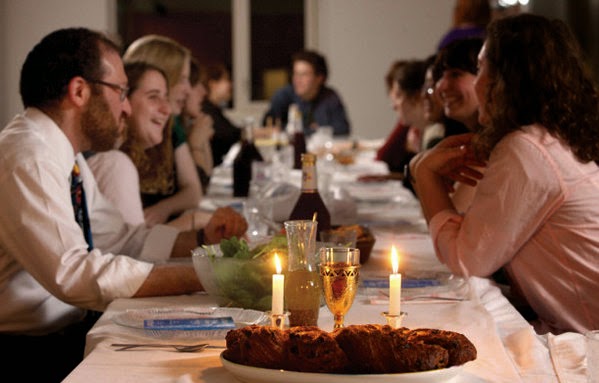Family Connection
 |
| Google Images |
In Exodus 13, as the Israelites begin their trek to the land God had once promised to their forefather, Abraham, God gives Moses some instructions designed to keep the “family” connection between Himself and His people strong and healthy.
“The Lord said to Moses, ‘Consecrate to me every firstborn male. The first offspring of every womb among the Israelites belongs to me, whether man or animal’” (Exodus 13:1, 2).
In some traditions this instruction has become a desire on the part of parents to have at least one family member become a priest, nun, or some other religious professional. But that wasn’t the original intent. If we look at Exodus 13:8 we discover that this son had a specific task related to his consecration as belonging to the Lord. The Israelites were to remember what God had done for them in rescuing them from Egypt and it was the duty of this son to make sure that the tradition of remembering was carried on within the family.
“On that day [the day that this historic event was celebrated] tell your son, ‘I do this because of what the Lord did for me when I came out of Egypt. This observance will be for you like a sign on your had and a reminder on your forehead that the law of the Lord is to be on your lips. For the Lord brought you out of Egypt with his mighty hand. You must keep this ordinance at the appointed time year after year’” (13:8-10). This firstborn became the keeper of the spiritual tradition of his family, and one that he would pass on. The following verses refer to this consecration of the son as a redemptive act, a living illustration of God’s mercy and faithfulness to His people.
Among Jewish families today, that tradition continues as the Passover is remembered on a household by household basis.
In our experience as evangelicals this dedication to connecting the family through the celebration of God’s mercy and faithfulness is not nearly as strong—if it exists at all. We have come to depend on the church to provide the family’s strongest connection with the mercy and faithfulness of God. And rather than equip heads of households with what they need to be those “firstborn” the church often encourages co-dependance rather than inter-dependence.
We never think about what would happen if we were suddenly to be plunged into a world where there was no local church, no pastors, no professional staff, no Bible teachers allowed. The Jewish community, persecuted as they have been throughout the centuries and in probably every part of the world, carries within it, a strength that we need to learn from. As strong as their commitment might be to their synagogues and to the activities of their communities, they maintain an equally strong commitment to the “in-house” commemoration of their faith. That element has probably done more than anything else to keep them from extinction.
There might be an important lesson for us, as Christians to learn from that.



Comments
Post a Comment